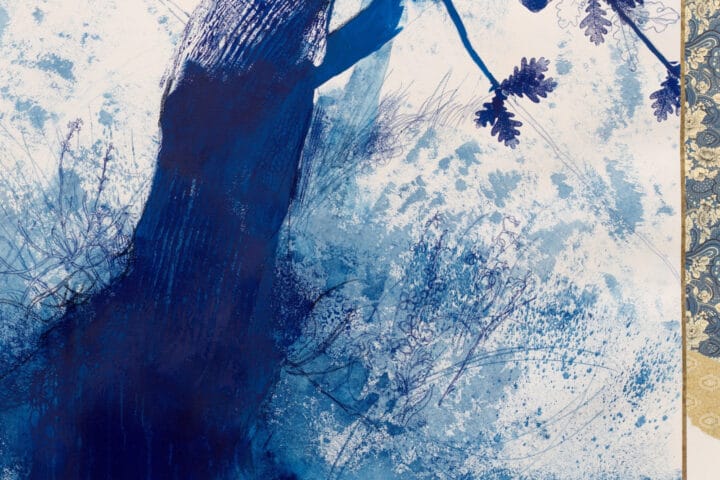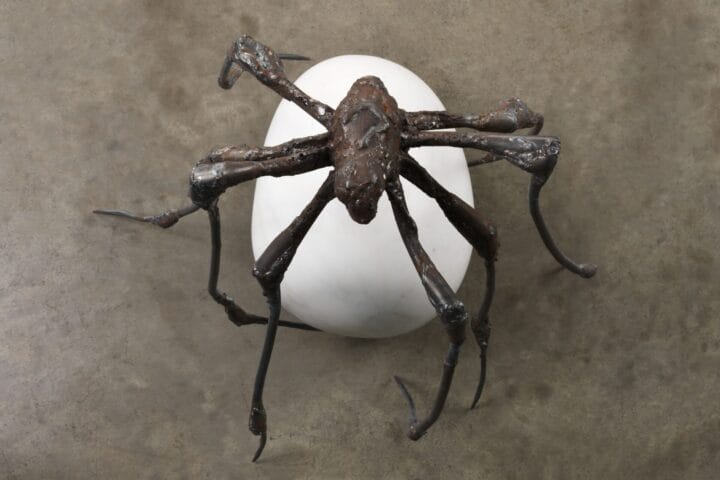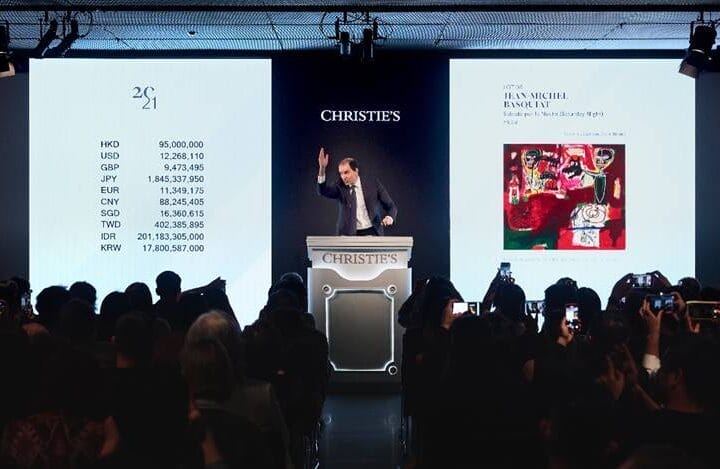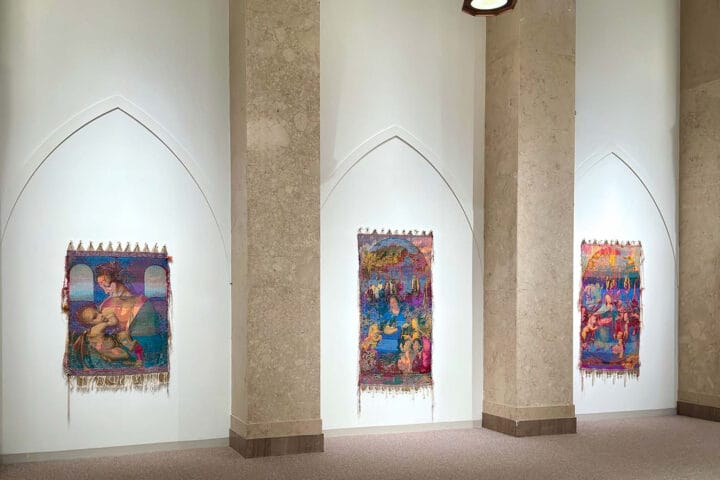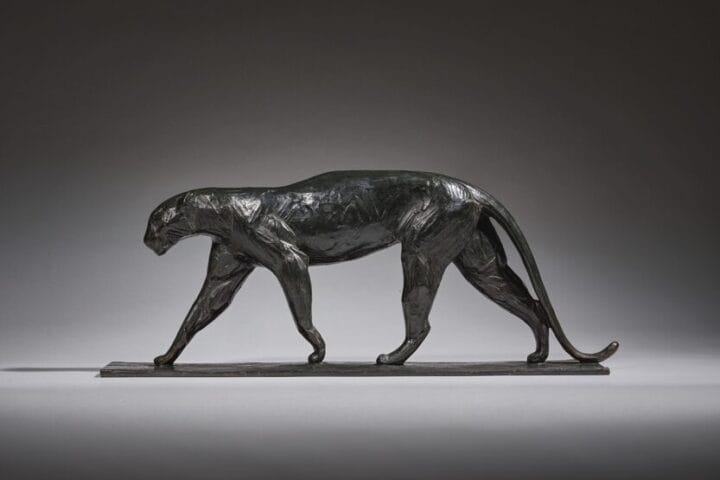Yossi Milo Gallery is pleased to announce our participation in The Armory Show, taking place at the Javits Center from September 8 – 11. With a focus on painting, our booth presents a selection of artists whose work centers narrative, recalling and retelling stories ranging from collective history, to classical mythology, to personal identity. Our booth will include work by Linus Borgo, Angela Dufresne, John Gill, Asif Hoque, Jeremy Jaspers, Natia Lemay, Navot Miller, Anoushka Mirchandani, Meghann Riepenhoff, Shikeith, and Cameron Welch, among others.
Yossi Milo Gallery’s booth will present a selection of largely figurative works spanning three areas of inquiry: the outsider experience, the reworking of canonized myth, and the framing of modern life through a queer lens. The gallery’s presentation falls in step with a contemporary renaissance of figurative painting, which has made way for a radical retelling of human history and contemporary existence, especially as they relate to marginalized communities and stories left untold.
The works of Natia Lemay (b. 1985; T’karonto [Toronto], Canada), Anoushka Mirchandani (b. 1988; Pune, India), and Navot Miller (b. 1991; Israel) explore what it means to stand out and be othered, to not belong and code-switch, visualizing these experiences each with their own distinct approach. As a Black Indigenous woman living in Canada, Lemay explores hypervisibility and invisibility with self-portraits delineated in textured strokes of black paint. Mirchandani has developed a visual language of code-switching in her painting practice, which she uses to express and navigate the variegated facets of her identity as an Indian-American woman navigating shifting gender roles. Miller’s experiences as a gay, Jewish immigrant living in Germany figure prominently in his painting, which centers depictions of queer love in vibrantly colored, architecturally grandiose spaces.
A similar investigation of otherness, especially as it relates to the art historical canon, can be found in the work of Linus Borgo (b. 1995; Stamford, CT), Asif Hoque (b. 1991; Rome, Italy), and Cameron Welch (b. 1990; Indianapolis, IN), all of whom deconstruct and rethink classical Western lore in their work. Drawing from the imagery of Italian Renaissance painting and Greco-Roman mythology, Borgo’s work deals with themes of spiritual elevation, identity, and reclamation of the body. Likewise interested in mythological tales, Hoque blends Roman and Bengal traditions to construct new myths, filling them with majestic Brown bodies and mystical beasts. With stone, tile, glass, precious metals, and found objects, Welch assembles monumental mosaics that illuminate overlooked and forgotten histories. Collectively, these artists chip away at the framework of canonized mythology and art history, rebuilding and expanding them to encompass the histories of oppressed peoples and silenced communities.
More recent pasts are revisited by painters Angela Dufresne (b. 1969; Hartford, CT) and Jeremy Jaspers (b. 1977; Berlin, Germany), who draw from classic cinematic traditions in order to paint new, queer visions of life off-screen today. Harnessing the sensational, erotic appeal of mass-produced Hollywood pictures, Dufresne and Jaspers manage to capture both the unease of an era ruled by intolerance, and the allure of giving visibility to taboo behaviors. Dufresne draws from a language of cinema to compose energetic, emotionally-charged scenes filled with bodies in motion, many of whom bear the likenesses of beloved Hollywood starlets. Jaspers harnesses the uncanny, mysterious air of film noir flicks, setting the stage for tense moments of longing between queer figures meeting in the city streets, or concealed behind doors left slightly ajar.
Yossi Milo Gallery’s booth will also present a selection of photographic, multimedia, and sculptural works that aptly complement the themes explored by the presented paintings. Photographer Simen Johan (b. 1973; Kirkenes, Norway), ceramicist John Gill (b. 1949; Renton, WA) and interdisciplinary artist Shikeith (b. 1989; Philadelphia, PA) are among the artists to be featured. In his eerie photographs of wild animals, Johan merges traditional photography with digital compositing techniques to blur boundaries between the familiar and otherworldly. Approaching his craft with a spirit of spontaneous innovation, Gill hand-builds bombastic vessels from slabs of clay, which he arranges into scaffolded levels of angular geometric planes. Shikeith’s multidisciplinary practice explores the line between sacred and secular encounters with ecstasy, guided by his interest in hauntology, Christianity, and spiritual traditions from the African diaspora.
Photo-based artist Meghann Riepenhoff (b. 1979; Atlanta, GA), whose solo exhibition Ice will take place concurrently at Yossi Milo Gallery, will also be featured. Riepenhoff’s dynamic cyanotypes not only depict, but are themselves the record of water in its varied states. For her Ice works, the artist immerses large sheets of cyanotype paper directly into the elements, allowing snow, ice, and freezing waters to coat the paper’s surface. The elements are then removed, both by way of the artist’s intervention and the natural propensity of ice to melt: a collaboration between artist and the immoveable will of nature. Ice opens September 10 at Yossi Milo Gallery and will remain on view through October 22, 2022.


